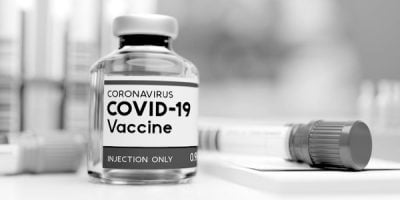Unheard of Side Effect: WHO Hides Hearing Loss as an Adverse Effect of COVID-19 Vaccines

All Global Research articles can be read in 51 languages by activating the “Translate Website” drop down menu on the top banner of our home page (Desktop version).
To receive Global Research’s Daily Newsletter (selected articles), click here.
Visit and follow us on Instagram, Twitter and Facebook. Feel free to repost and share widely Global Research articles.
***
The World Health Organization (WHO) has been pushing for a fourth dose of the Wuhan coronavirus (COVID-19) vaccine, but its reports have not been fully outright about the possible side effects that could affect people in the long term. Buried deep in its latest papers, the WHO said it is now looking into reports of hearing problems as an adverse effect of the shots.
The organization has reported 367 cases of tinnitus among those who have received at least one shot of the COVID-19 vaccine, and the condition is characterized by ringing in the ears, usually within days after the vaccine is administered to the patient.
Those who have experienced this side effect ranged in age from 19 to 91 and from 27 different countries, including Italy, the United States and the United Kingdom. Almost 75 percent of these reports came from women.
In addition to the tinnitus cases, the WHO also reported 164 individuals who have new hearing loss after receiving the vaccines as of February 22.
In a newsletter, the WHO said: “A recent signal detection activity at the Uppsala Monitoring Centre (UMC) identified hearing loss (including sudden cases) and tinnitus following COVID-19 vaccination as a preliminary signal to be further assessed.” Other symptoms the patients experienced included headache, dizziness and nausea.
Some patients were able to recover quickly, but there are also others who had to undergo “steroid treatment” to address the side effects. Moreover, multiple patients described their tinnitus after vaccination as “unrelenting and life-altering” that could also last for months.
The WHO said it needs to continue monitoring reports of these side effects to make a final determination on the steps to address them further. In its newsletter, it mentioned that awareness of the possible link may help healthcare professionals and those vaccinated to monitor symptoms and seek care.
“As there is still only limited data in the literature providing evidence for this link, further monitoring is required,” the WHO stated, which came after the Food and Drug Administration (FDA) authorized the fourth dose of Pfizer and Moderna vaccines. (Related: Fauci claims fourth COVID dose is “entirely conceivable.”)
FDA approves fourth vaccine dose
The FDA has already authorized a second booster shot for both Pfizer and Moderna vaccines for individuals over 50, bypassing its own advisory committee – the Vaccines and Related Biological Products Advisory Committee – on the matter. According to CNBC, the move came just two weeks after Pfizer and Moderna initially requested authorization for the fourth shot.
The vaccines are meant to go along with the original two doses and the first booster shot, which means that people who have had the Pfizer and Moderna vaccines will have to be inoculated for the fourth time.
Additionally, the FDA also authorized Pfizer boosters for those aged 12 and up and with compromised immune systems. A second Moderna booster is also required for those ages 18 and up with a compromised immune system.
The Centers for Disease Control and Prevention (CDC) also quickly signed off on the decision, allowing those that are eligible for a new round of boosters. Additionally, the CDC recommended that those who received two doses of Johnson & Johnson’s vaccine get third shots using Pfizer or Moderna.
However, those who received the J&J vaccine with the second shot of Pfizer or Moderna are not yet eligible for a third dose unless they are over 50 or have compromised immune systems. All of the new boosters are also to be administered at least four months after their last shot.
Dr. Peter Marks, head of the FDA office responsible for vaccine safety and efficacy, said the drug regulator did not call for an advisory meeting due to the decision being “relatively straightforward.”
“This fourth booster dose is something that evidence that we have now from Israel suggests that by getting this, one can reduce the risk of hospitalization and death in this population of older individuals,” he said during a call with reporters after the decision was made. (Related: CDC sends notice after pharmacies RESIST order to give the immunocompromised a fourth COVID-19 vaccine dose.)
Dr. Paul Offit, a committee member, criticized the drug regulator for moving forward without holding an open meeting with the American public, who should hear how experts weigh the data and make recommendations to the FDA. While the vaccine advisory committee’s recommendations are non-binding, they do help provide transparency for the public.
*
Note to readers: Please click the share buttons above or below. Follow us on Instagram, Twitter and Facebook. Feel free to repost and share widely Global Research articles.
Featured image is from The Conservative Woman

